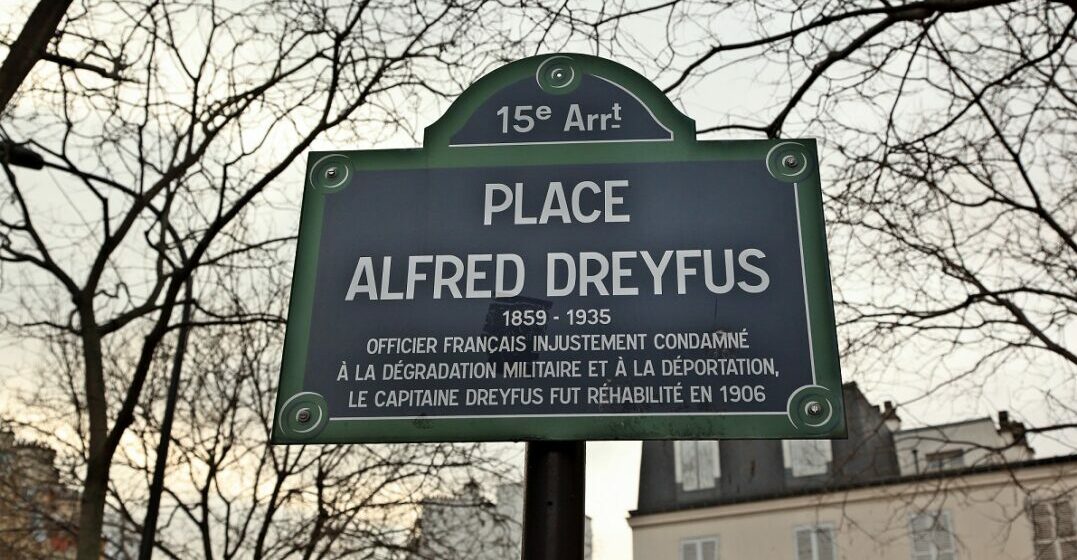The Dreyfus affair and how it divided France
Published on May 11, 2022 / Updated on January 8, 2024
French history has greatly shaped the country it is today and there have been many historic events, figures and periods that contributed to this, like the Edict of Nantes and Napoleon. The Dreyfus affair is another example of how an event can significantly impact a country on a social and political level. The effects of this scandal of injustice and antisemitism can still be felt today, centuries later. In this article, you’ll learn all about France and the Dreyfus affair, what happened and when, and how it has impacted France as a country.
The Dreyfus affair refers to a modern injustice involving a young army captain who was falsely convicted of treason. To understand this story, it’s important to first provide some context.
Towards the end of the 19th century, France was experiencing several crises, like the economic crisis and the Panama Scandal. The feeling of insecurity and doubt amongst people was high and the government moved towards an aggressive form of nationalism, giving rise to antisemitism in the country. This was particularly exacerbated by the publication of La France juive (Jewish France), an antisemitic publication by Édouard Drumont, the director and publisher of the newspaper La Libre Parole.
Captain Alfred Dreyfus was a young Alsatian man in the French army who was of Jewish descent. In 1894, he was accused of sharing French secrets with the German Embassy in Paris and was arrested. Alfred Dreyfus was taken to trial, convicted of the crime and sentenced to life in prison. At the time, the public supported his conviction, as did many antisemitic figures like Edouard Drumont. People questioned Dreyfus’ loyalty, as Alsace had only recently been annexed to the new German Empire.
In 1896, everything changed: the new head of the army intelligence unit, Georges Picquart, discovered new evidence which proved Dreyfus’ innocence. He secretly began investigating and came to the conclusion that the actual guilty party was another French officer, Walter Esterhazy. He alerted his superiors to the evidence but they didn’t want to admit that they may have got it wrong, so they decided to launch a massive cover-up. Various members of the army tried to discredit Picquart and he was eventually sent overseas.
Despite this, the wheels were already in motion and many Dreyfus supporters began to look into Esterhazy. The military was eventually forced to hold a court-martial for Esterhazy, but he was so well protected that the army quickly acquitted him of any crime.
By this point, France was completely divided as a nation: the anti-Dreyfusards, many of whom were antisemitic, believed that the army took precedence over any individual, while the Dreyfusards, often Republicans and far-left supporters, believed Dreyfus to be innocent and supported freedom of the individual and justice. A defining moment was when Emile Zola, the famous French novelist and journalist, published an open letter to the French government called “J’accuse” in the newspaper L’Aurore. This was in protest of Esterhazy’s innocent verdict and was a full-blown attack on the government and the army. He accused both of conspiring to imprison Dreyfus on false grounds. This letter had a major impact on public opinion, but also led to Zola being convicted of libel.
In June 1899, the Supreme Court in France held a formal hearing in which it overturned the original 1894 judgment, due to more new evidence. The case was sent back to the military court to hold a retrial of Dreyfus’ case, which it did in August of that year. Once again, Dreyfus was convicted of treason, but this time under “extenuating circumstances” and he was given a reduced sentence of ten years. The public reaction to this was so violent that the President of France at the time, Emile Loubet, gave Dreyfus an official pardon in order to try and control the outrage provoked by the case.
It was only in 1906, twelve years after this scandal began, that Dreyfus was officially exonerated and reinstated to the army.
The Dreyfus affair was the worst case of a miscarriage of justice and of antisemitism ever seen in the country. The impact the Dreyfus affair had on French society and politics was significant. On a social level, antisemitism was rife and only got worse after the Dreyfus affair. On a political level, the affair highlighted the division between the Left and Right in the country and the strong presence of antisemitism.
Even today in the 21st century, the Dreyfus affair is still ingrained in the minds of many French people. It is a painful reminder to the country of injustice and led President Emmanuel Macron to open a museum dedicated to the affair. It is a sad but important part of French history.
